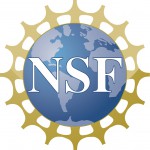Publications: Below are publications related to the Data Nuggets program – including our research into the efficacy of our resources, best practices when sharing the stories of scientists in the classroom, and teaching data literacy.
- Strode, P.K., L.S. Mead, M. Stuhlsatz, M.K. Kjelvik, E.H. Schultheis, A. R. Warwick, A. Mohan, J.A. Morris, and R. Mayes. 2025. Quantitative Reasoning in the Context of Science Phenomena. The American Biology Teacher 87:308-312. Click here for a PDF!
- Costello, R.A., S.N. Ewell, P.E. Adams, M.L. Aranda, A. Curry, M.M. De Jesus, R.D.P. Dunk, M.E. Garcia-Ojeda, SJ. Gutzler, L.R.A. Habersham, M.K. Kjelvik, M. Mateen, K.J. Metzger, K.X. Mulligan, M.T. Owens, R.M. Pigg, K. Quillin, M.M. Rice, S. Sovi, E.H. Schultheis, J. Schultz, E.J. Theobald, E.Tracey, B. Tripp, S. Yang, A. Zemenick, C.J. Ballen, and D. Ovid. (2025). Highlighting counterstereotypical scientists in undergraduate life science courses. CBE Life Sciences Education 24:es1. Click here for a PDF!
- Costello, R. A., E. P. Driessen, M. K. Kjelvik, E. H. Schultheis, R. M. Youngblood, A. T. Zemenick, M. G. Weber, and C. J. Ballen. (2025). More than a token photo: humanizing scientists enhances student engagement. Proceedings. Biological sciences / The Royal Society 292:20240879. Press release here. More press here. Click here for a PDF!
- Schultheis, E. H., A. T. Zemenick, R. M. Youngblood, R. A. Costello, E. P. Driessen, M. K. Kjelvik, M. G. Weber, and C. J. Ballen. (2024). “Scientists are people too”: Biology students relate more to scientists when they are humanized in course materials. CBE Life Sciences Education 23:ar64. Click here for a PDF!
- Schultheis, E. H., M. K. Kjelvik, J. Snowden, L. Mead, and M. A. M. Stuhlsatz (2022). Effects of Data Nuggets on student interest in STEM careers, self-efficacy in data tasks, and ability to construct scientific explanations. International Journal of Science and Mathematics Education 21:1339-1362. Video summary here. Click here for a PDF!
- Rosenberg, J., E. H. Schultheis, M. K. Kjelvik, A. Reedy, O. Sultana. (2022). Big data, big changes? The technologies and sources of data used in science classrooms. British Journal of Educational Technology 53:1179-1201. Blog summary here. Click here for a PDF!
- Schultheis, E. H. and M. K. Kjelvik (2020). Using messy, authentic data to promote data literacy and reveal the nature of science. The American Biology Teacher 82(7): 439-446. Click here for a PDF!
- Kjelvik, M. K. and E. H. Schultheis (2019). Getting messy with authentic data: Exploring the potential of using data from scientific research to support student data literacy. CBE Life Sciences Education 18(2): es2. Click here for a PDF!
- Schultheis, E. H. and M. K. Kjelvik (2015). Data Nuggets: Bringing real data into the classroom to unearth students’ quantitative and inquiry skills. The American Biology Teacher 77(1):19-29. Click here for a PDF!
NSF IUSE Research Study (2024-2028): This grant continued our collaboration with Auburn University to develop DataVersify materials. Sadly, this grant was terminated by the NSF in 2025. It would have funded Data Nuggets for 4 years and built off our previous research looking at how sharing scientists stories help students relate to scientists and in turn increases their engagement in the classroom. We hope to continue our work identifying factors that help students view science careers as attainable and promote an interest in STEM in the next generation.
Check out the MSU press release here, and the Auburn press release here.
NSF IUSE Research Study (2020-2024): We collaborated with Project Biodiversify and Auburn University to increase the representation in our scientist role-models found in Data Nuggets. We added new DataVersify activities that combine a Data Nugget with a Scientist Profile that adds additional humanizing information about the person behind the data, such as their hobbies and interests. In undergraduate science classrooms, we found that DataVersify activities:
-
Increased the extent to which students related to scientist role models.
-
Changed how students related. Students shifted from relating to professional details, like the scientist’s passion for a particular topic, towards more personal information like their hobbies, identities, and obstacles they overcame.
-
Increased student engagement with data literacy course materials.
-
Effects were strongest when the identities of students matched an element of the scientist’s identity (and was even stronger for a double-match).
Check out the MSU press release here, and DataVersify activities here!
NSF DRK-12 Research Study (2015-2020): Our first research study was in partnership with BSCS. Using a fully randomized design, we evaluated the effectiveness of integrating Data Nuggets into high school biology curriculum. We found that students in classrooms using Data Nuggets:
-
Spent 2x more time in class engaged in the practices of science.
-
Were better at constructing scientific explanations, including their ability to support claims using data as evidence.
-
Had greater confidence (self-efficacy) in their science and data literacy abilities.
-
Showed greater motivation to engage in science and pursue STEM careers.
Check out the MSU press release here. All study materials and a summary of findings here!
BEACON: Data Nuggets was awarded several seed grants through the BEACON Center at Michigan State University. The goal of this collaboration was to develop and provide science communication professional development workshops across all 5 BEACON institutions, create evolution-themed curriculum to use in K-12 and undergraduate classrooms, and disseminate BEACON research to teachers and students.
LTER Data Nuggets: Data Nuggets began in 2011 as a collaboration between scientists and teachers through the K-12 Partnership at the Kellogg Biological Station. Since its start, the KBS LTER has supported the Data Nuggets program to develop new activities that focus on long-term data, share scientists’ stories, and expand students’ data literacy abilities. To explore these resources, check out this page!


